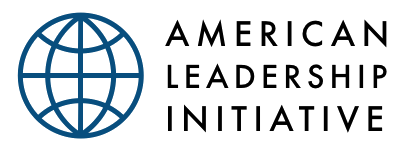Addressing Global Corruption
/Over the past couple of years, Latin America has been torn apart by the largest global corruption scandal in modern history. Its web of bribes spread across four continents and at least 12 countries -- implicating the highest levels of government in some and prompting the biggest fine, $3.5 billion, ever levied by the U.S. Department of Justice.
The secret “bribery department” at the Brazilian construction conglomerate Odebrecht funneled more than $800 million in payouts to politicians across Latin America, including to top officials in Brazil, Panama and Peru, in exchange for large infrastructure projects across the continent.
This dramatic case study highlights the profound impact of corruption in the developing world. The time is ripe to strengthen the fight against corruption by advancing the rule of law with a holistic approach that includes diplomacy, development assistance and trade agreements.
The damage that corruption causes for the countries involved includes massive diversion of public funds desperately needed for infrastructure, education and healthcare. Even more importantly, corruption undermines democratic institutions. The UN estimates that 10 to25 percent of public contract value is lost to corruption in some countries.
The U.S. should make opposing global corruption a key focus of its foreign policy, and part of an overall commitment to of its global engagement, part of its commitment to core values that include good governance, the rule of law, and inclusive and sustainable development.
Countries with good governance and rule of law are less likely to have wealth concentrated in a small elite and more likely to have inclusive and sustainable development, making those countries more stable and secure. Transnational criminal and terrorist organizations thrive in countries that lack effective governance, threatening American and global interests.
Corruption is also a barrier to U.S. exports. U.S. companies are prohibited by the Foreign Corruption Practices Act from bribing foreign officials. Because many foreign companies face no such restriction, they are able to win contracts that American companies have to walk away from, costing the U.S. both exports and revenues.
The economic boom of the first decade of this millennium caused rapid growth of the middle class in many developing countries. Enabled by new digital tools, their voices are being heard as they seek things already demanded by the middle class in developed countries – good governance, public safety and honest administrations.
The Odebrecht bribery case and other scandals have made corruption a central issue in many Latin America elections, contributing to the recent downfall of several presidents and ministers. Anti-corruption was the main focus of last year’s Summit of the Americas.
Eliminating corruption is not easy to achieve, especially when it is ingrained in the culture and many government officials benefit from it, but countries need to identify and implement step-by-step actions that move them in the right direction.
The specific steps each country can take will vary depending on its current circumstances, political will and other factors. Key areas that countries should focus on include: judicial independence; enacting and enforcing effective anti-bribery laws; set declarations by public officials; simplification and transparency of regulations; transparency in public procurement; simplification and transparency in customs processing; support for free press oversight; and civil society engagement.
The challenge – and opportunity – for the United States and the rest of the international community is to encourage, enable and assist honest, pro-reform leaders to implement and sustain the needed changes.
In order to address the challenge of widespread corruption, U.S. policy should prioritize anti-corruption initiatives based upon the rule of law in policy and funding and create a centralized mechanism in the National Security Council to develop a cohesive U.S. government strategy and coordinate with multilateral institutions, and NGOs to achieve maximum results.
The U.S., together with the international community, should increase their funding to support these reforms, including providing technical assistance and training for judges and prosecutors, customs officials and civil society, to support these countries to eliminate corruption and develop a rule of law culture.
While the U.S. has a wide range of assistance programs through various government agencies which provide capacity building and training, these programs need to be significantly expanded and coordinated into a cohesive U.S. government strategy. Such an initiative should also eliminate both the stovepipes and duplication between U.S. agencies and develop an appropriate set of tools for each country in a coordinated fashion.
The U.S. should also encourage more countries to sign on to the anti-corruption language in U.N., OECD, OAS, WTO and other agreements and codes. Some, such as the Organization for Economic Coordination and Development, involve peer review to encourage adherence to commitments, but most are simply statements of intent.
Trade commitments can be effective in addressing corruption and agreements increasingly include enforceable commitments on transparency and anti-corruption. The 2017 WTO agreement on Trade Facilitation includes specific commitments and incentives for countries to improve transparency in their customs processes (often a hotbed of corruption). The TPP included a specific chapter on anti-corruption and, USMCA includes an anti-corruption chapter accepted by all three parties. Such language to eliminate corrupt practices that distort trade benefits both U.S. exporters and the partner country.
Public procurement and customs processes may be the most significant channels for corrupt practices in developing countries. The International Monetary Fund estimates that in some countries nearly 80 percent of corrupt payments occur in those channels. The WTO Government Procurement Agreement includes general commitments on transparency, but it has relatively few signatories. Looking for other channels to create enforceable requirements for public procurement would be useful.
The U.S. should make opposing global corruption a key tenet of its global engagement, part of its commitment to core values that include good governance, the rule of law, and inclusive and sustainable development. U.S. promotion of these values around the world is not only a moral imperative, but also enhances our national security and economic interests as well as our global prestige and ability to lead.


